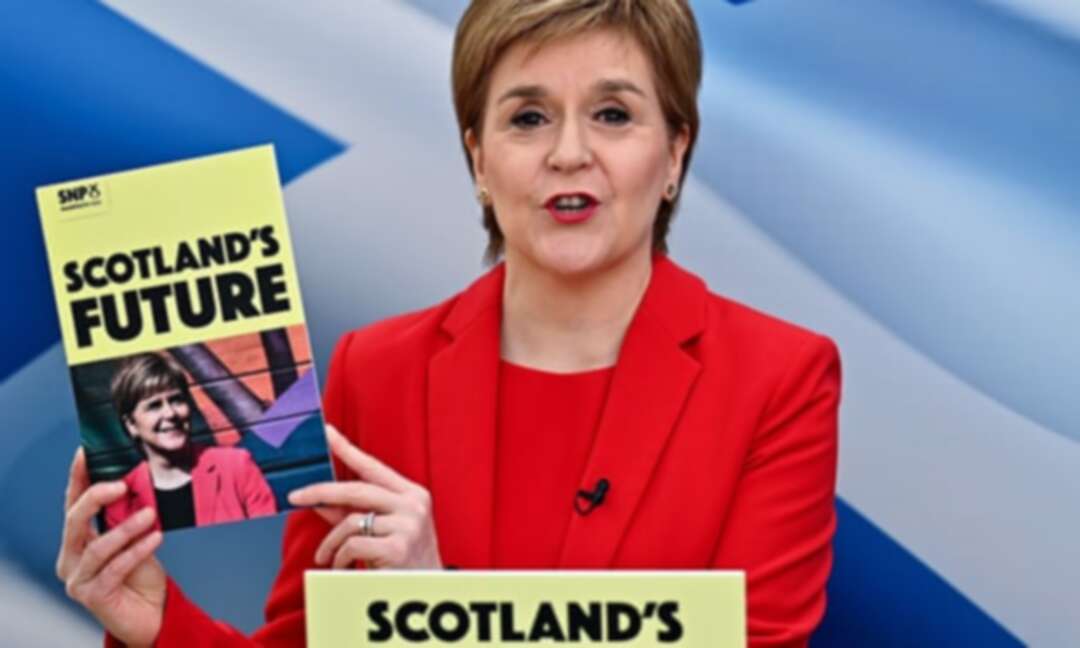-
Scottish parties making unrealistic spending promises, warns IFS

Institute says health and social care manifesto pledges affordable only by increasing taxes or service cuts
Scotland’s main political parties have made unrealistic spending promises as they battle for votes in May’s Holyrood election, the Institute for Fiscal Studies has warned.
The IFS said the Scottish National party, Conservatives and Labour were pledging billions of extra pounds in health and social care funding that was affordable only by raising taxes or cutting other public services.
It accused all three parties of relying too heavily on UK government funding increases next year and beyond, which were unlikely to be anywhere near as high as they were leading voters to believe.
David Phillips, an IFS associate director, said neither the SNP, which is on course to comfortably win the election on 6 May, or Labour, had made a serious attempt to cost their manifesto pledges or explain properly how they would be paid for.
Their manifestos offered a “smörgåsbord” of headline-grabbing promises, including the SNP’s offer to increase NHS spending by £2.5bn while freezing income tax, and Labour’s undertaking to spend £4.5bn on an expansive Covid recovery programme.
The Conservatives had shown greater prudence overall yet had underestimated their pledge to protect NHS spending by at least £600m or a quarter of future funding increases. Even though all three parties’ NHS funding pledges looked very generous, in reality they would not keep pace with rising costs and demand, and would be lower than NHS funding increases in England.
Phillips, a specialist in devolved nations’ finances, said the parties had “failed to level with voters on the challenges ahead”. All three manifestos shared “a disconnect from the fiscal reality the next Scottish government is likely to face.
“Rising demand for, and costs of, health and social care could easily absorb three-quarters of the projected cash increase in the Scottish government’s budget over the next few years, substantially more than the SNP and Conservatives have budgeted for.
“
The IFS analysis, funded by the University of Glasgow’s Scottish Policy Foundation, is its first comparative critique of Holyrood election manifestos. It did not analyse the Scottish Greens and Liberal Democrats’ manifestos because it did not have the capacity to do so.
Phillips said the biggest problem with all three manifestos was it were they relied heavily on the UK government keeping Treasury funding at current levels: that was extremely unlikely next year. Instead, Treasury support could increase by only 1%, leaving huge holes in their spending plans.
source: Severin Carrell
Levant
You May Also Like
Popular Posts
Caricature
BENEFIT Sponsors BuildHer...
- April 23, 2025
BENEFIT, the Kingdom’s innovator and leading company in Fintech and electronic financial transactions service, has sponsored the BuildHer CityHack 2025 Hackathon, a two-day event spearheaded by the College of Engineering and Technology at the Royal University for Women (RUW).
Aimed at secondary school students, the event brought together a distinguished group of academic professionals and technology experts to mentor and inspire young participants.
More than 100 high school students from across the Kingdom of Bahrain took part in the hackathon, which featured an intensive programme of training workshops and hands-on sessions. These activities were tailored to enhance participants’ critical thinking, collaborative problem-solving, and team-building capabilities, while also encouraging the development of practical and sustainable solutions to contemporary challenges using modern technological tools.
BENEFIT’s Chief Executive Mr. Abdulwahed AlJanahi, commented: “Our support for this educational hackathon reflects our long-term strategic vision to nurture the talents of emerging national youth and empower the next generation of accomplished female leaders in technology. By fostering creativity and innovation, we aim to contribute meaningfully to Bahrain’s comprehensive development goals and align with the aspirations outlined in the Kingdom’s Vision 2030—an ambition in which BENEFIT plays a central role.”
Professor Riyadh Yousif Hamzah, President of the Royal University for Women, commented: “This initiative reflects our commitment to advancing women in STEM fields. We're cultivating a generation of creative, solution-driven female leaders who will drive national development. Our partnership with BENEFIT exemplifies the powerful synergy between academia and private sector in supporting educational innovation.”
Hanan Abdulla Hasan, Senior Manager, PR & Communication at BENEFIT, said: “We are honoured to collaborate with RUW in supporting this remarkable technology-focused event. It highlights our commitment to social responsibility, and our ongoing efforts to enhance the digital and innovation capabilities of young Bahraini women and foster their ability to harness technological tools in the service of a smarter, more sustainable future.”
For his part, Dr. Humam ElAgha, Acting Dean of the College of Engineering and Technology at the University, said: “BuildHer CityHack 2025 embodies our hands-on approach to education. By tackling real-world problems through creative thinking and sustainable solutions, we're preparing women to thrive in the knowledge economy – a cornerstone of the University's vision.”
opinion
Report
ads
Newsletter
Subscribe to our mailing list to get the new updates!






















